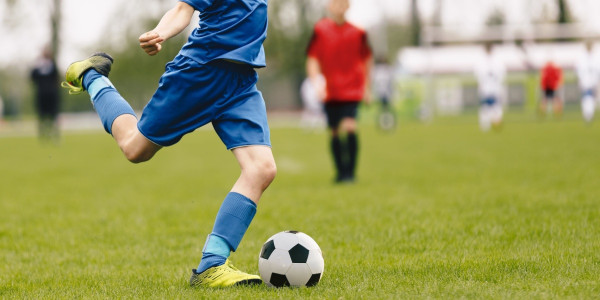VPTrade.com Expands Reach: Innovative Trading Platform Now in Latin America and Asia

United States, 6th Jun 2024, King NewsWire - Participation in organized sports offers numerous benefits for children, including physical fitness, teamwork, and the development of discipline. However, ensuring the safety of young athletes is paramount. Here’s a comprehensive guide on how to keep kids safe during organized sports.
1. Proper Equipment and Gear
The cornerstone of sports safety is the use of appropriate equipment. Each sport has specific gear designed to protect players from common injuries. For instance, football players need helmets and shoulder pads, while soccer players require shin guards. Ensuring that all equipment fits correctly is crucial. Ill-fitting gear can be just as dangerous as no gear at all. Regular maintenance and checks of equipment are also necessary to ensure everything is in good condition.
2. Hydration and Nutrition
Proper hydration and nutrition are essential for young athletes. Dehydration can lead to heat exhaustion or heat stroke, particularly during hot weather. Children should drink water before, during, and after games and practices. Additionally, a balanced diet rich in proteins, carbohydrates, vitamins, and minerals will help maintain energy levels and aid in recovery. Avoiding sugary snacks and drinks is also beneficial.
3. Warm-Up and Cool-Down Routines
Incorporating warm-up and cool-down routines into practice sessions can significantly reduce the risk of injuries. Warm-up exercises, such as light jogging and stretching, prepare the body for physical activity by increasing blood flow to the muscles. Cool-down routines help gradually lower the heart rate and stretch muscles, aiding in recovery and reducing muscle stiffness.
4. Injury Prevention and Management
Understanding and recognizing common sports injuries, such as sprains, strains, and fractures, is vital. Educating children on the symptoms of these injuries ensures they can seek help promptly. Immediate response to injuries using the R.I.C.E. method (Rest, Ice, Compression, Elevation) can prevent further damage. Following medical advice and allowing adequate recovery time is essential to prevent re-injury.
5. Physical Conditioning and Fitness
Regular physical conditioning enhances overall fitness, reducing the likelihood of injuries. Age-appropriate strength and conditioning programs help build resilience and endurance. Coaches should focus on developing a balanced fitness regimen that includes strength training, cardiovascular exercises, and flexibility training.
6. Mental and Emotional Well-Being
Sports can be stressful for children, especially when there is pressure to perform. It is important to foster a positive and supportive environment. Encourage children to enjoy the game and focus on personal improvement rather than just winning. Addressing any signs of anxiety or stress promptly and providing mental health support can help maintain their overall well-being.
7. Understanding and Following Rules
Adhering to the rules of the sport not only ensures fair play but also reduces the risk of injuries. Coaches and parents should educate children about the importance of following the rules and practicing good sportsmanship. Respect for opponents and officials promotes a safer playing environment.
8. Supervision and Coaching
Qualified and trained coaches play a crucial role in ensuring safety during sports activities. Coaches should be knowledgeable about the sport, safety protocols, and injury management. Proper adult supervision during practices and games is necessary to monitor the players and enforce safety measures.
9. First Aid and Emergency Preparednes
Having a well-stocked first aid kit readily available during practices and games is essential. Coaches and supervisors should be trained in basic first aid procedures and CPR. An emergency action plan should be in place for dealing with serious injuries, including having contact information for emergency services and parents.
10. Parental Involvement and Education
Parents should be proactive in understanding the safety measures associated with their child's sport. Communication between parents and coaches is key to addressing any concerns. Parents should also educate their children about the importance of safety and following the coach’s instructions.
11. Environmental Factors
Being mindful of environmental conditions can prevent many health issues. Protecting children from extreme weather conditions, such as excessive heat or cold, is crucial. Ensuring that the playing fields and facilities are well-maintained and safe from hazards is also important.
12. Regular Health Check-Ups
Regular medical check-ups and sports physicals are essential to monitor a child’s health and fitness for sports. Keeping an up-to-date medical history helps in managing any underlying health conditions that may affect sports participation.
In conclusion, keeping kids safe during organized sports requires a comprehensive approach that involves proper equipment, hydration, warm-ups, injury prevention, mental well-being, rule adherence, supervision, first aid readiness, parental involvement, environmental awareness, and regular health check-ups. By prioritizing these aspects, we can ensure that young athletes enjoy the benefits of sports while minimizing the risks.
Follow us on Facebook and Twitter. By Dr. Kevin Crawford, Sports Medicine Lubbock and Orthopedic Surgeon Lubbock.
Media Contact
Organization: Dr. Kevin Crawford, Lubbock Orthopedic Surgeon
Contact Person: Office Manager
Website: https://lubbocksportsmed.com/lubbock-sports-doctors/dr-kevin-crawford/
Email: Send Email
Country:United States
Release id:12922
The post Key Ways to Help Keep Kids Safe During Organized Sports appeared first on King Newswire. It is provided by a third-party content provider. King Newswire makes no warranties or representations in connection with it.









